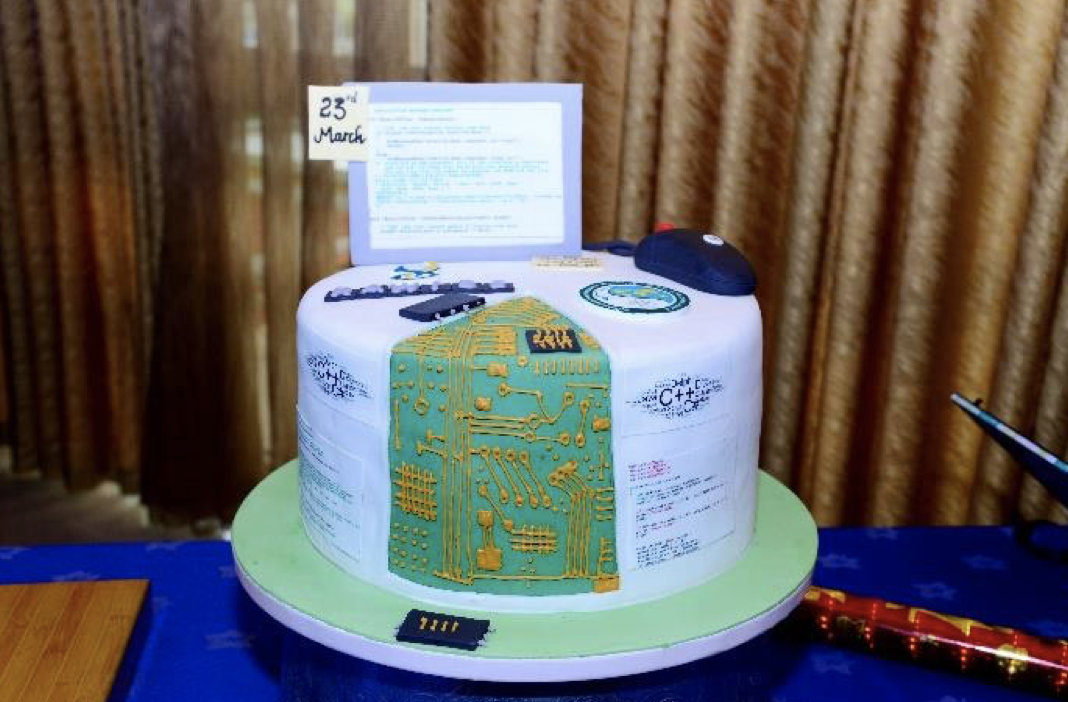SACEMA Newsletter: August 2018
NEWS
SACEMA PhD student presides over launch of Rwandan Association for Women in Sciences and Engineering (RAWISE)
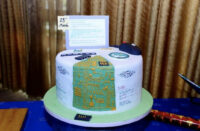 On March 23rd, SACEMA PhD student Eva Ujeneza presided over the official launch of the Rwandan Association for Women in Sciences and Engineering (RAWISE) as the master of ceremonies. The launch event was held during a dinner, at the Lemigo Hotel in Kigali. Over 150 guests from various international and national organisations and governments attended. Guest speakers included: Prof Jennifer Thomson, OWSD President; Karen Craggs, AIMS-NEI global group director for gender equality, inclusion & business development; Prof Eliane Ubalijoro, member of the advisory board of the president of Rwanda and professor at McGill University; Ylann Schemm, Director of Elsevier Foundation (OWSD-EF Awards) and Dr Christine Gasingirwa, Director of Science and Technology in Rwanda. Ms Alice Ikuzw, RAWISE chairperson, spoke about the mission and goals of the association, and presented its current projects (which can be found at: http://rawise.org.rw/projects/). The ceremony ended with the cutting of a science-based cake.
On March 23rd, SACEMA PhD student Eva Ujeneza presided over the official launch of the Rwandan Association for Women in Sciences and Engineering (RAWISE) as the master of ceremonies. The launch event was held during a dinner, at the Lemigo Hotel in Kigali. Over 150 guests from various international and national organisations and governments attended. Guest speakers included: Prof Jennifer Thomson, OWSD President; Karen Craggs, AIMS-NEI global group director for gender equality, inclusion & business development; Prof Eliane Ubalijoro, member of the advisory board of the president of Rwanda and professor at McGill University; Ylann Schemm, Director of Elsevier Foundation (OWSD-EF Awards) and Dr Christine Gasingirwa, Director of Science and Technology in Rwanda. Ms Alice Ikuzw, RAWISE chairperson, spoke about the mission and goals of the association, and presented its current projects (which can be found at: http://rawise.org.rw/projects/). The ceremony ended with the cutting of a science-based cake.

Eva Ujeneza(left) with delegates and guest speakers at the RAWISE launch in Kigal
SACEMA participates in “Science in Context” programme
SACEMA PhD student, Elisha Are together with his promotor, Prof John Hargrove and SACEMA postdoc fellow, Joseph Sempa participated in the first ever “Science in Context” programme, initiated by the Faculty of Science at Stellenbosch University.The programme is designed to give first-year students exposure to contemporary issues in science that require interdisciplinary perspectives. Twenty-five students chose SACEMA’s proposed topic: “To date, we have only managed to eradicate two infectious diseases one in humans (smallpox) and one that affected livestock (rinderpest). Discuss the major barriers to eradication of an infectious disease. Which disease is likely to be the next one eradicated, and why?” This has been more shortly titled: “Eradication of infectious diseases”. The students selected Malaria, Polio, Measles and Guinea-worm disease as the most likely diseases to be eradicated. At the end of the programme students will submit an essay and give a final project presentation.

Elisha Are (left) and Joseph Sempa (right) talking to first year students during the Science in Context programme
Graduations 2018
Zinhle Mthombothi and James Azam graduated with an MSc in Mathematics, in the Faculty of Science at Stellenbosch University. Zinhle’s thesis, entitled “Studying the effects of temperature change on the dynamics of tsetse flies and trypanosomiasis disease transmission”, was supervised by Prof John Hargrove and Dr Rachid Ouifki. James’s thesis, entitled “Assessment of a measles outbreak response vaccination campaign, and two measles parameter estimation methods”, was supervised by Prof Juliet Pulliam.

Zinhle Mthombothi (left) and James Azam (right)
Frieda Geldenhuys graduated with an MSc in Mathematics, in the Faculty of Science at Stellenbosch University. Her thesis, entitled “Using species distribution models for spatial conservation planning of African penguins”, was supervised by Prof Cang Hui.
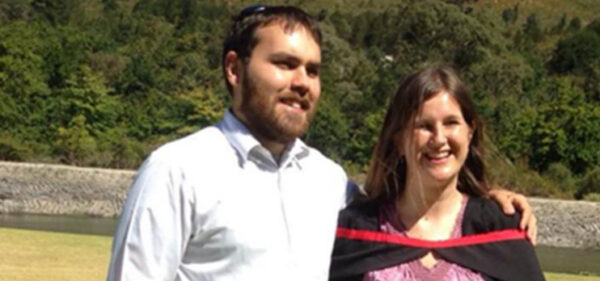
Frieda Geldenhuys (right) with Graham Morrison (left)
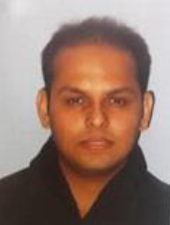
Sumanth Karamchand graduated with distinction at the University of Cape Town, with a Master of Science in Medicine (Clinical Pharmacology). His dissertation, entitled “Morbidity from Antiretroviral Metabolic effects in Africa: The MAMA study”, was supervised by Prof Gary Maartens and Dr Karen Cohen.
 Ishmael Mbuso Mntambo graduated with a PhD in Public Health, in the Faculty of Community and Health Sciences at the University of the Western Cape. His thesis, entitled “Development of the Public Health Model of Community Participation in the Kwazulu-Natal Primary Health Care System”, was supervised by Prof Thandi Puoane and Prof Steve Reid.
Ishmael Mbuso Mntambo graduated with a PhD in Public Health, in the Faculty of Community and Health Sciences at the University of the Western Cape. His thesis, entitled “Development of the Public Health Model of Community Participation in the Kwazulu-Natal Primary Health Care System”, was supervised by Prof Thandi Puoane and Prof Steve Reid.
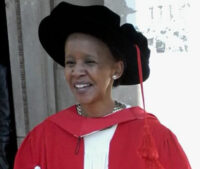 Coceka Mnyani graduated with a PhD in Public Health at the University of the Witwatersrand.Her thesis, entitled “Assessing progress and barriers to elimination of mother-to-child transmission and decreasing HIV-related maternal deaths in the Johannesburg Health District”, was supervised by Prof Eckhart Buchmann and Prof Matthew Chersich.
Coceka Mnyani graduated with a PhD in Public Health at the University of the Witwatersrand.Her thesis, entitled “Assessing progress and barriers to elimination of mother-to-child transmission and decreasing HIV-related maternal deaths in the Johannesburg Health District”, was supervised by Prof Eckhart Buchmann and Prof Matthew Chersich.
Former SACEMA researcher and now SACEMA Research Associate, Roxanne Beauclair graduated with a PhD in Health Sciences at Ghent University. Her thesis entitled “Age Differences in Sexual Relationships and HIV Transmission: Statistical Analyses of Bio-Behavioural Survey Data from Southern Africa”, was supervised by Professors Wim Delva, Niel Hens and Marleen Temmerman.
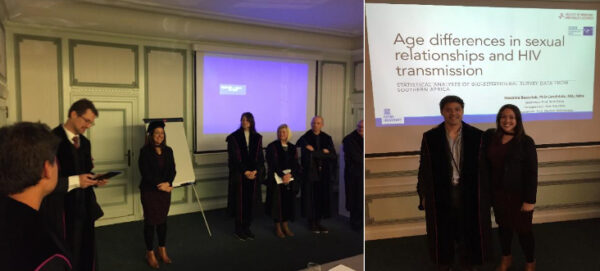
Dr Roxanne Beauclair (far right) with Prof Wim Delva
We congratulate the 2017/2018 graduates and wish them all the very best for the future
Arrivals & Departures
 In April, SACEMA said goodbye to Trust Chibawara. Trust joined SACEMA as a Researcher in 2015 and moved to a part-time programmer position in 2017 whilst pursuing a PhD. He will continue pursuing a PhD under the supervision of Prof Peter Nyasulu from the University of Stellenbosch at the Division of Epidemiology and Biostatistics, Faculty of Medicine and Health Sciences. We wish him all the best for the future.
In April, SACEMA said goodbye to Trust Chibawara. Trust joined SACEMA as a Researcher in 2015 and moved to a part-time programmer position in 2017 whilst pursuing a PhD. He will continue pursuing a PhD under the supervision of Prof Peter Nyasulu from the University of Stellenbosch at the Division of Epidemiology and Biostatistics, Faculty of Medicine and Health Sciences. We wish him all the best for the future.
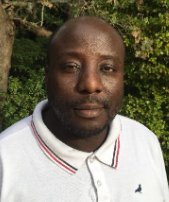 Masimba Paradza was appointed at the end of May as the new Training Co-ordinator, working alongside Dr Gavin Hitchcock who retires at the end of 2018. Prior to joining SACEMA, Masimba spent more than six years as a Lecturer and postgraduate programme coordinator at the University of the Western Cape. He has a keen interest in numerical computing and developing simulations for teaching purposes, and is currently at the end stages of a PhD in Physics, focusing on the applications of non-extensive statistics to high energy physics.
Masimba Paradza was appointed at the end of May as the new Training Co-ordinator, working alongside Dr Gavin Hitchcock who retires at the end of 2018. Prior to joining SACEMA, Masimba spent more than six years as a Lecturer and postgraduate programme coordinator at the University of the Western Cape. He has a keen interest in numerical computing and developing simulations for teaching purposes, and is currently at the end stages of a PhD in Physics, focusing on the applications of non-extensive statistics to high energy physics.
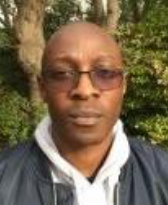 Perceval Maturure joined SACEMA in June as a Technical Officer. Prior to joining SACEMA, he served in several roles in his career, including Systems Administration, Tutor in Programming and Mathematics, IT Management, SQL Database Administration and Website development in industry. His passion lies in the use of Software and Database Technologies for scientific research.
Perceval Maturure joined SACEMA in June as a Technical Officer. Prior to joining SACEMA, he served in several roles in his career, including Systems Administration, Tutor in Programming and Mathematics, IT Management, SQL Database Administration and Website development in industry. His passion lies in the use of Software and Database Technologies for scientific research.
 Olugbenga Oluwagbemi is a DST-NRF innovation postdoctoral research fellow, working on the application of Agent-based modelstowards the control of HIV, under the supervision of Prof Cang Hui of the Department of Mathematical Sciences and Prof Wim Delva of SACEMA. Olugbenga completed his undergraduate and postgraduate studies in Nigeria and holds a PhD in Computer Science from Covenant University in Nigeria. He conducted his PhD research at the Johns Hopkins Bloomberg School of Public Health, USA, under the sponsorship of the Fulbright Scholarship Foundation. His PhD research, entitled “AnoSpEx: A Spatially-Explicit Computational Model for the Meta population Dynamics of Anopheles mosquitoes“, was supervised by Prof Jason Rasgon.After completing his PhD, Olugbenga worked as a Senior Lecturer in the Department of Computer and Information Sciences, at Covenant University in Nigeria, and is currently a Senior Lecturer in the Department of Computer Science at Federal University Lokoja in Nigeria. His research interests centre around software engineering, informatics in health, expert systems, bioinformatics, computational modelling and simulation, application of computational methods to solving problem caused by infectious and communicable diseases.
Olugbenga Oluwagbemi is a DST-NRF innovation postdoctoral research fellow, working on the application of Agent-based modelstowards the control of HIV, under the supervision of Prof Cang Hui of the Department of Mathematical Sciences and Prof Wim Delva of SACEMA. Olugbenga completed his undergraduate and postgraduate studies in Nigeria and holds a PhD in Computer Science from Covenant University in Nigeria. He conducted his PhD research at the Johns Hopkins Bloomberg School of Public Health, USA, under the sponsorship of the Fulbright Scholarship Foundation. His PhD research, entitled “AnoSpEx: A Spatially-Explicit Computational Model for the Meta population Dynamics of Anopheles mosquitoes“, was supervised by Prof Jason Rasgon.After completing his PhD, Olugbenga worked as a Senior Lecturer in the Department of Computer and Information Sciences, at Covenant University in Nigeria, and is currently a Senior Lecturer in the Department of Computer Science at Federal University Lokoja in Nigeria. His research interests centre around software engineering, informatics in health, expert systems, bioinformatics, computational modelling and simulation, application of computational methods to solving problem caused by infectious and communicable diseases.
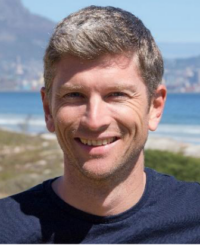 Marijn Hazelbag was appointed as a postdoctoral research fellow at SACEMA. He has a background in statistics and obtained a PhD in Epidemiology at Utrecht University in the Netherlands. His research in Utrecht mainly considered methods for causal inference. After finishing his PhD he spent two years teaching introductory statistics courses. He is currently working with Prof Wim Delva on two projects: the first is a review looking at current practice in calibration of individual based models data, and the second is a comparison of methods for approximate Bayesian computation.In addition, Marijn is the new coordinator for the Biomathematics Honours Programme at Stellenbosch University
Marijn Hazelbag was appointed as a postdoctoral research fellow at SACEMA. He has a background in statistics and obtained a PhD in Epidemiology at Utrecht University in the Netherlands. His research in Utrecht mainly considered methods for causal inference. After finishing his PhD he spent two years teaching introductory statistics courses. He is currently working with Prof Wim Delva on two projects: the first is a review looking at current practice in calibration of individual based models data, and the second is a comparison of methods for approximate Bayesian computation.In addition, Marijn is the new coordinator for the Biomathematics Honours Programme at Stellenbosch University
 Elisha Are joined SACEMA at the end of February as a PhD student, working under the supervision of Prof John Hargrove. His PhD project involves estimating the probability of extinction of tsetse fly populations (Glossinaspp) in field situations where meteorological conditions vary continuously with time. Elisha completed his previous studies in Nigeria, having obtained a BSc and MSc degree in Mathematics at the University of Ilorin.
Elisha Are joined SACEMA at the end of February as a PhD student, working under the supervision of Prof John Hargrove. His PhD project involves estimating the probability of extinction of tsetse fly populations (Glossinaspp) in field situations where meteorological conditions vary continuously with time. Elisha completed his previous studies in Nigeria, having obtained a BSc and MSc degree in Mathematics at the University of Ilorin.
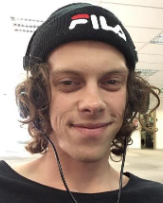 Jeremy Luke Bingham is an MSc student. With a background in physics, online marketing and biological mathematics, Jeremy has recently moved into the world ofblood transfusion safety. His master’s research focuses on the widespread practice of risk over-estimation. Supervised by Dr Eduard Grebe and Prof Alex Welte, Jeremy is developing theoretical improvements to residual risk models while helping to builddecision-making tools for policy makers.
Jeremy Luke Bingham is an MSc student. With a background in physics, online marketing and biological mathematics, Jeremy has recently moved into the world ofblood transfusion safety. His master’s research focuses on the widespread practice of risk over-estimation. Supervised by Dr Eduard Grebe and Prof Alex Welte, Jeremy is developing theoretical improvements to residual risk models while helping to builddecision-making tools for policy makers.
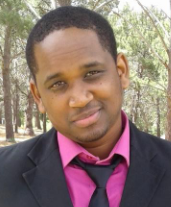 Wynand-Junior van Staden is also an MSc student. He has a background in Biomathematics and is working with Dr Eduard Grebe and Prof Alex Welte on modelling a within-host drug-resistant mycobacterium tuberculosis infection.
Wynand-Junior van Staden is also an MSc student. He has a background in Biomathematics and is working with Dr Eduard Grebe and Prof Alex Welte on modelling a within-host drug-resistant mycobacterium tuberculosis infection.
STUDENT SCIENTIFIC ACTIVITIES
SACEMA PhD students participate in Next Einstein Forum in Rwanda
SACEMA PhD students, Eva Ujeneza and David Niyukuriparticipated in the second Next Einstein Forum (NEF) global gathering, held in Kigali, Rwanda, from 26-28 March 2018. The NEF global gathering was preceded by several pre-events that included the second African Gender Summit (14th worldwide) and the official Launch of the Rwandan Association for Women in Science and Engineering (RAWISE) for which Eva is a founding member and the Vice-President. One particular aspect of NEF is that it is a cross-disciplinary platform where around 50% of the participants areunder 42 years, and of these at least 40% are women.
The NEF 2018 was attended by 1600 delegates from Africa, Europe, Asia, and America, and it was one of the major scientific conferences in Africa. The main theme “Connecting Science to Humanity”, was addressed through different plenary sessions and side events. Amongst the highlights of the event were the launch of “Scientific African” a new open-access science journal owned by the Next Einstein Forum, and a presidential panel on “Laying the groundwork for knowledge-led economies: Policy and practice”. The panel was composed of a number of dignitaries, including President Macky Sall of Senegal, President Paul Kagame of Rwanda, Mmamoloko Kubayi-Ngubane (South Africa’s Minister of Science and Technology),Theresia Bauer (German Minister of Science, Research and the Arts, Baden-Württemberg State) and Thierry Zomahoun (CEO and President of AIMS).
The upcoming Next Einstein Forum (NEF) global gathering will be held in Nairobi in 2020, under the patronage of Kenya’s President Uhuru Kenyatta.
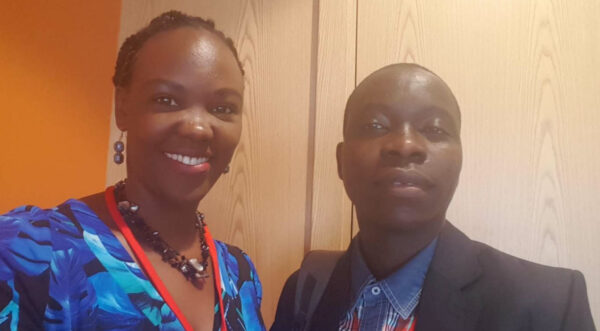
Eva Ujeneza (left) with David Niyukuri (right) at the NEF gathering in Rwanda
SACEMA PhD student attends 68th Lindau Nobel Laureates Meeting
David Niyukuri, a SACEMA PhD student was nominated by the African Academy of Sciences to attend the 68th Lindau Nobel Laureate meeting in Germany from 23–29 June 2018. This high level meeting enables cross-generational and cultural dialogue between young scientists and Nobel Laureates. David reports: “This year, the meeting was dedicated to Medicine and Physiology, and it was a great occasion to hear about great discoveries in Medicine or Physiology, Physics, and Chemistry which have led to spectacular improvement in thelives of billions of people around the world. Discussions on current health threats like antimicrobial drug resistance, the future of precision medicine and gene editing, and all the ethical questions that arise, were included in the agenda.
Besides discussions on pressing questions which need to be solved by scientists for a better future for humankind, young scientists were given an opportunity to receive advice from Nobel Laureates about their career in Science and how to do meaningful science. Young scientists were advised to be focused when applying for research positions or graduate studies, accept the pressure from their peers, and always be open to comments and criticisms. Seniors scientists and PI’s were encouraged to challenge young scientists tobe independent early in their career. The issue of impact factor, publication of negative results, Open Science and Open Access, were hot topics during a heated debate on scientific publication. Senior scientists were urged to focus, during their recruitment process for research positions, on single-paragraph narratives summarising the importance of candidates’ newest results in their respective fields. Seniors scientists agreed to take the lead in making changes in publication processes and scholarly measurement. The scientific community cannot allow the publishing process to become a surrogate for measuring scholarly value. The change of the publication process has to be driven by the scientific community. It was argued that public-funded research has to be open access; universities cannot pay twice: for publishing and for having access to articles”.
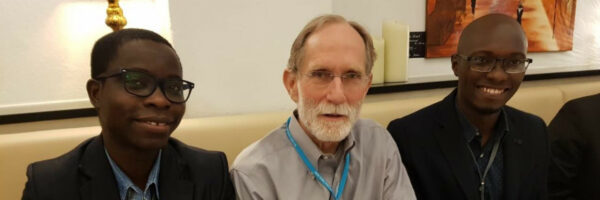
David Niyukuri (left) with Peter Agre (Nobel Laureate) andSimon Kimuda, PhD Research Fellow at the MRC/UVRI Uganda Research Unit on AIDS, Uganda [ASS nominee]
SACEMA master’s student presents at Biomath 2018
Master’s student, Khotso Matlou attended the Annual International conference on Mathematical Methods and Models in Biosciences (Biomath) which took place 24 –29 June 2018 at the Institute of Mechanics of the Bulgarian Academy of Sciences in Sofia, Bulgaria. It was part of the Year of Mathematical Biology-a joint venture of the European Mathematical Society (EMS)and the European Society for Mathematical and Theoretical Biology (ESMTB). This conference is devoted to recent research in life sciences based on applications of mathematics as well as mathematics applied to or motivated by biological studies. It is a multidisciplinary meeting forum for researchers who develop and apply mathematical and computational tools to the study of phenomena in the broad fields of biology, ecology, medicine, biotechnology, bioengineering, environmental science, etc.
The conference kicked off with the Roumen Tsanev Lecture, presented by Nevena Ilieva from the Institute of Information and Communication Technologies, Bulgarian Academy of Sciences. “It was an amazing opportunity to network with keynote speakers such as: Raluca Eftimie, Marie Doumic, Wolfgang Pauli, Miroslaw Lachowicz, Nikolaos Sfakianakis and Gail Wolkowicz”, says Khotso. The conference socials gave participants a dive into Bulgarian art, culture and history. Khotso’s presentation was entitled “Assessing risks and benefits of Indoor Residual Spraying for malaria control in Limpopo: A mathematical modelling approach”. Khotso also participated in the School for Young Scientists. The school consists of plenary lectures and sessions of an introductory nature, giving foundations and insight into the respective topic, rather than focusing on new results, and these are presented by some of the keynote speakers of the conference.

Delegates of the Biomath conference in Bulgaria
5th South African TB Conference
PhD students, Zoe Gill and Mmamapudi Kubjane attended the 5thSouth African TB conference, held in Durban from 12-15 June. Zoe was joined by her two co-supervisors Dr Hlumani Ndlovu and Dr MohlopheniJackson Marakalala. One of the highlights of the conference was a smaller SAMRC funded mini-conference from 12-14 June. The focus of the mini conference was on “cutting edge” technologies for TB diagnosis, paired with the current state of TB bio-marker discovery. Zoe reports: “Mmamapudi Kubjane gave a great talk on her MSc work involving TB and Diabetes entitled ‘Tuberculosis and Associated Transient Hyperglycaemia in Peri-Urban South Africa: Implications for Diabetes Screening in High Tuberculosis/HIV-1 Burden Settings’, under the theme: Impact of biological factors on the care cascade”.
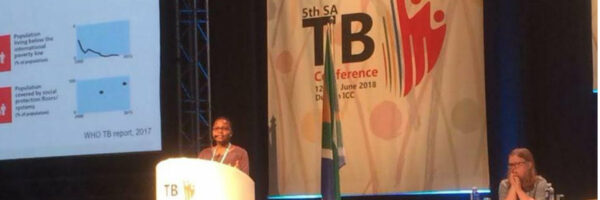
Mmamapudi Kubjane presenting her talk at the 5thSA TB conference in Durban
INTERNATIONAL MEETINGS
SACEMA’s director presents at meetings in the US
 In February, SACEMA’s director, Prof Juliet Pulliam, attended two workshops in the United States. The first, entitled “Ecological knowledge and predictions: integrating across networks and national observatories,” brought together an international group ofresearchers who work in diverse fields within the broader discipline of ecology to discuss the state of the art of ecological forecasting. The workshop was held 19-21 February at the University of Arizona and was sponsored by the US National Science Foundation. Prof Pulliam gave a talk on epidemiological forecasting and a lightning presentation on the International Clinics on Infectious Disease Dynamics and Data (ICI3D) programme. The second workshop, entitled “Integrative approaches to understanding and predicting pathogen spill over,” focused on synthesizing data and theory to quantify the pathways that allow pathogen transmission from one species to another. The workshop was organized by researchers at Montana State University and sponsored by the Defense Advanced Research Projects Agency. Prof Pulliam presented on capacity building for epidemiological modelling. Workshop participants also worked on a number of papers that will be incorporated into an upcoming issue of Philosophical Transactions of the Royal Society, which Prof Pulliam will co-edit.
In February, SACEMA’s director, Prof Juliet Pulliam, attended two workshops in the United States. The first, entitled “Ecological knowledge and predictions: integrating across networks and national observatories,” brought together an international group ofresearchers who work in diverse fields within the broader discipline of ecology to discuss the state of the art of ecological forecasting. The workshop was held 19-21 February at the University of Arizona and was sponsored by the US National Science Foundation. Prof Pulliam gave a talk on epidemiological forecasting and a lightning presentation on the International Clinics on Infectious Disease Dynamics and Data (ICI3D) programme. The second workshop, entitled “Integrative approaches to understanding and predicting pathogen spill over,” focused on synthesizing data and theory to quantify the pathways that allow pathogen transmission from one species to another. The workshop was organized by researchers at Montana State University and sponsored by the Defense Advanced Research Projects Agency. Prof Pulliam presented on capacity building for epidemiological modelling. Workshop participants also worked on a number of papers that will be incorporated into an upcoming issue of Philosophical Transactions of the Royal Society, which Prof Pulliam will co-edit.

